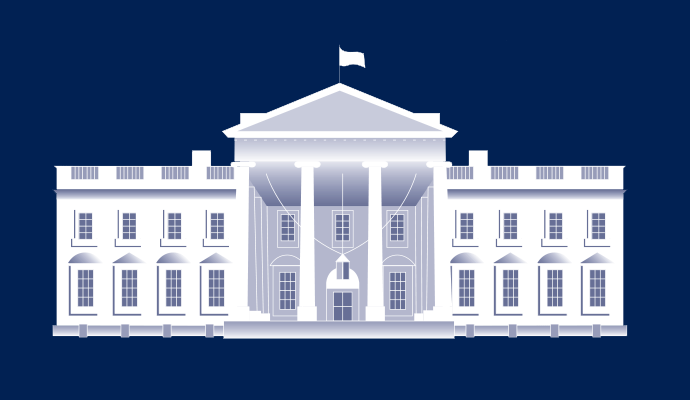New Executive Order Pledges Increased Support for Medicare Advantage
A new executive order signals the Trump Administration’s support for Medicare Advantage and plans to further the industry’s transition to value-based care.

Source: White House
- On Thursday, President Trump issued the Executive Order on Protecting and Improving Medicare for Our Nation’s Seniors that will authorize the Department of Health & Human Services to expand Medicare Advantage and reduce fee-for-service.
“Americans have to get the highest quality. So we have the highest quality that Americans deserve,” President Donald Trump said before signing the order.
Additionally, the executive order calls for a change to reimbursement practices that could allow non-physician clinicians to bill Medicare and a plan to redefine site-specific payment. RevCycleIntelligence.com discusses those implications for providers here.
Several sections, in particular, impact payers and health plans.
Providing More Plan Choices to Seniors
The White House tasks the HHS Secretary with proposing new regulation and other activities aimed at increasing the number of plans and benefits available to Medicare beneficiaries:
(i) encourage innovative MA benefit structures and plan designs, including through changes in regulations and guidance that reduce barriers to obtaining Medicare Medical Savings Accounts and that promote innovations in supplemental benefits and telehealth services;
(ii) include a payment model that adjusts supplemental MA benefits to allow Medicare beneficiaries to share more directly in the savings from the program, including through cash or monetary rebates, thus creating more incentives to seek high-value care; and
(iii) ensure that, to the extent permitted by law, FFS Medicare is not advantaged or promoted over MA with respect to its administration.
The Trump Administration also calls on HHS to work with the Council of Economic Advisers to bring Medicare fee-for-service payments in line with prices on par with Medicare Advantage and commercial plans.
Improving Access Through Network Adequacy
Under the executive order, HHS will propose new regulation to spur greater competition among Medicare Advantage plans:
(a) the competitiveness of the health market in the States in which such plans operate, including whether those States maintain certificate-of-need laws or other anti-competitive restrictions on health access; and
(b) the enhanced access to health outcomes made possible through telehealth services or other innovative technologies.
Encouraging Innovation for Patients
This section focuses primarily on collaboration between the Centers for Medicare & Medicaid Services and Food and Drug Administration to bring products and drugs to market. However, one provision addresses disparities in fee-for-service and value-based reimbursement:
(b) modifying the Value-Based Insurance Design payment model to remove any disincentives for MA plans to cover items and services that make use of new technologies that are not covered by FFS Medicare when those items and services can save money and improve the quality of care.
Empowering Patients, Caregivers, and Health Providers
Again, HHS will propose new regulation, this time focused on providing beneficiaries with information about care quality and cost with the goal of “improving their ability to make decisions about their healthcare that work best for them and to hold providers and plans accountable.”
Specifically, HHS will look to improve the sharing of Medicare claims data to direct beneficiaries to the providers that adhere to recommended standards of care.
Eliminating Waste, Fraud, and Abuse to Protect Beneficiaries and Taxpayers
Last but by no means least, HHS has the challenge of bringing Medicare fee-for-service pricing in line with industry standards by studying alternative approaches to payment:
(i) shared savings and competitive bidding in FFS Medicare;
(ii) use of MA-negotiated rates to set FFS Medicare rates; and
(iii) novel approaches to information development and sharing that may enable markets to lower cost and improve quality for FFS Medicare beneficiaries.
In an accompanying fact sheet, the White House noted that Medicare Advantages premiums have experienced a 28-percent decrease since 2017, with premiums at their lowest rate in 7 years. The past years have seen an additional 1,200 Medicare Advantage enter the market.
